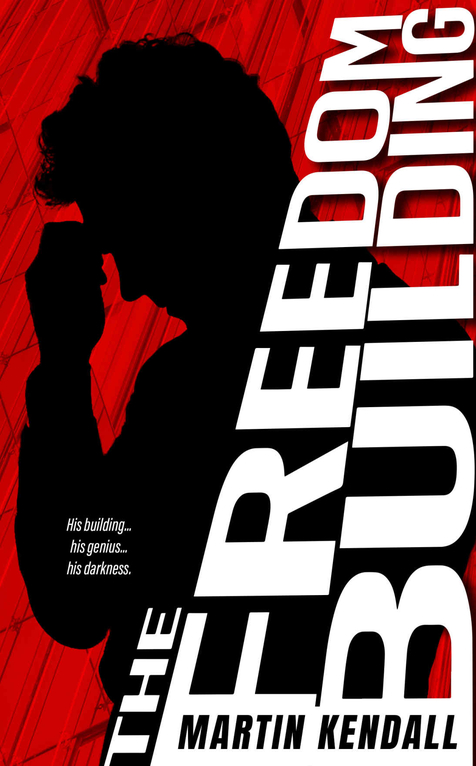
Author Martin Kendall delves into a tangled and untrustworthy mind in the unsettling psychological thriller The Freedom Building. A plot that keeps you guessing overlays a much deeper exploration of memory, repression, and identity in this mind-bending read.
John Gowan is an ambitious British architect with big dreams, but little chance of winning the contract for the new building to replace one attacked by terrorists. After visiting the future site and doing a bit of dreaming, he gets in a car accident, only to wake up the next day to find that more than three years have passed.
More importantly, he discovers that he did become the architect of the replacement building, the Zenith Star, and has lived three years of a life from which he has no memory. From this inexplicable premise comes a meticulously penned narrative of deception, revelation, and self-reflection, as seen through the internal filter of Gowan’s addled mind. Hiding his amnesia from those closest to him, Gowan must navigate this new world where everyone knows more about his recent history than he does.
Rife with visceral passages of confusion and cognitive chaos, readers are led into the labyrinth of a troubled brain as Gowan tries to uncover his own repressed secrets. The secondary characters in the story, particularly his PA and partner, Janice, are well-developed emotional foils, like locks to John’s memory, if he could only find the proper key. Upon hearing that he seemed to be a completely different person during the span of time he has now forgotten, the existential dread only grows.
Touching on themes of psychological disorders, as well as the fluctuations of self that we experience through traumatic times, this book hints at so much, but rarely gives readers a straight answer. As the cracks in his amnesia facade begin to show, John’s grip on reality loosens, as does his tongue, plunging him into deep water with those who begin to question his patriotism – and sanity. The brewing conflict between truth and fiction threatens everything he has built in his life, leading to an explosive conclusion that will stick in readers’ minds long after the final page.
The execution of such a psychologically complex novel is a challenge, and operating from the perspective of a protagonist with apparent amnesia is ambitious, and Kendall mostly succeeds. However, once this central obstacle is established, it comes to dominate nearly every scene and interaction, and Gowan ends up asking himself the same questions over and over again, with little progress in terms of the existential ramifications. The pacing can therefore be slow and some scenes feel redundant.
On the technical side, there is an overuse of certain words and adjectives, enhancing that sense of redundancy. Generally, the descriptive passages are rich and the author clearly had a vision for how this story plays out, but some scenes are less lively than others, with lackluster imagery and somewhat clichéd dialogue. While this certainly creates peaks and valleys in the plot development, it may not be the type of dynamism the author was intending.
As a whole, weaving timely themes of patriotism, terrorism, mental health, and the nature of reality into a tangled novel that can only be described as Kafkaesque, Kendall still delivers impressively with The Freedom Building, for a cerebral yet gripping psychological thriller.
Book Links
STAR RATING
Design
Content
Editing
Get an Editorial Review | Get Amazon Sales & Reviews | Get Edited | Get Beta Readers | Enter the SPR Book Awards | Other Marketing Services























Leave A Comment